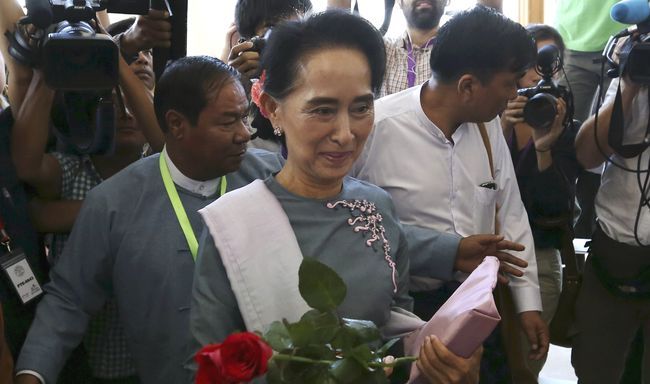Myanmar to follow the path of democracy
Success not guaranteed but possible
The first free election in 25 years took place in Myanmar and was won by the opposition National League for Democracy (NLD). Overall, 91 parties participated in the election. However, the real struggle unfolded between the NLD and the Union Solidarity and Development Party (USDP), backed by the army. According to preliminary data, the opposition garnered around 70 percent of all votes. The NLD leader, Nobel Prize laureate Aung San Suu Kyi urged her supporters to be prudent: “It is important not to provoke the losers.” The warning is more than well-grounded. In the 1990 election the NLD won, but the army declared the results of the polling void.
Myanmar, formerly (before 2005) Burma, became a British colony in 1824, although Anglo-Burmese Wars lasted until 1887. Kipling’s poem On the Road to Mandalay, rather popular in English-speaking countries, refers to the period.
During the World War Two Burma was occupied by the Japanese, who recruited Aung San, Secretary General of the Communist Party of Burma and founder of the Burma Independence Army (BIA). In March 1945, the BIA made contacts with the British command and took part in fighting against the Japanese.
In 1948, the country gained its independence. Meanwhile, the British promised independence also to the national minorities, the Shan, the Karen, and the Rakhine, thus planting a time bomb of endless civil war. The situation was also aggravated by the operations of the Kuomintang army (expelled by Mao Zedong from China) in the north of Burma, and its antagonist, the army of the Communist Party of Burma, backed by the Communist China. The fight was mainly over the possession of opium fields. In the west, Burma bordered on restless Indian states, torn by civil war, and in the east on the wooded regions of Thailand, the base of communist guerillas, also financed and armed by China.
All this provoked domestic instability, so in 1962 the army usurped the power for a long time in a coup. Under influence from Peking, the nation set out to build socialism, with such attributes as famine, empty store shelves, and ration cards.
In May 1989 election was announced in Burma, which was won in a landslide by the opposition League for Democracy, led by Aung San Suu Kyi, Aung San’s daughter. However, the military junta voided the results of the polling, and Aung San Suu Kyi was placed under house arrest, which lasted more than 15 years.
The persistent struggle of Burmese oppositionists led by Aung San Suu Kyi won her worldwide popularity.
In 1990, Suu Kyi received the Sakharov Award from the European Parliament, and a year later she was awarded the Nobel Peace Prize.
Even though the NLD has won the majority of seats in parliament, writes The New York Times, the situation can end up in a cul-de-sac. The constitution, written by the military, prohibits Suu Kyi to take up the top executive post. Past June, the legislative endorsed the ban on presidency for any individual whose next of kin are foreigners. Suu Kyi was married to an Englishman, who died in 1999. Her two sons are British subjects. Moreover, the military take up 25 percent seats in the country’s parliament.
Suu Kyi has always enjoyed the support of Washington and European nations. After the military chose to pass the power over to civilians, Myanmar became an example of voluntary democratization in an authoritarian regime.
Yet recently the relations have become somewhat cooler. The reason is that past June Suu Kyi did not take part in a conference held by the Nobel Institute in Oslo and dedicated to the protection of the Rohingya people in Myanmar. This Muslim minority has always been oppressed by the regime, and recently this problem acquired disastrous dimensions, with thousands of Rohingya trying to flee to Bangladesh and Thailand. The UN special rapporteur on Myanmar said that persecutions against the Rohingya could be considered as a crime against humanity.
The national issue in Myanmar remains extremely acute. This multinational country keeps seeing armed conflicts among national minority groups, and the embers of civil war can flare up at any moment again.
Many were fearful that the military might cancel the outcome of the election. Their influential representatives and so-called oligarchs lost to their rivals from the NLD. But there are hopes that the military junta will not be coming back to power. The flow of investment will grow thanks to Aug San Suu Kyi’s stable popularity in the West. The leaders who had been in power have enriched themselves, and it is not in their best interests to make relations with the West sour.
Myanmar made a step towards democracy. Success is not guaranteed, but it is possible.
Newspaper output №:
№68, (2015)Section
Topic of the Day





